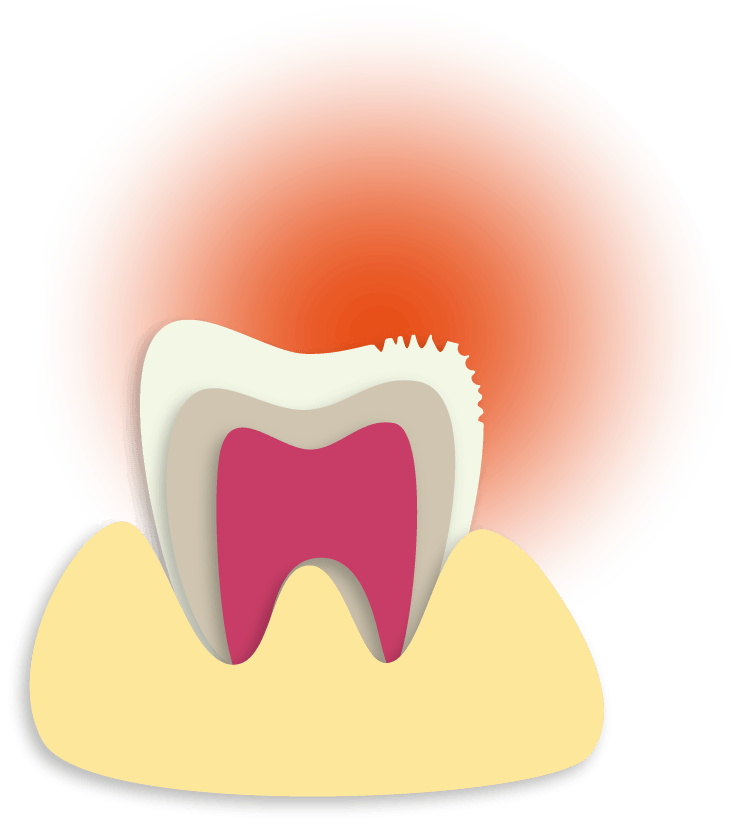
Saliva is a secretion that has many fundamental functions. Besides being an integral part of the digestive process, it plays a crucial role in the health of teeth and the oral cavity:
Protection
Biofilm

A biofilm is a slimy layer of bacteria and other microorganisms that stick together on a surface, forming a protective shield. In the mouth, biofilm forms when bacteria attach to teeth, gums, or other surfaces.
Oral acidosis refers to an increase in acidity within the mouth, leading to a lower-than-normal pH level in the oral environment.

The normal pH of saliva is slightly alkaline, ranging from 6.2 to 7.6. When the pH drops below this range, the acidic environment can damage teeth and affect overall oral health.
The symptoms of oral acidosis may not always be immediately noticeable, but over time, the condition can lead to:
Consuming acidic foods and beverages such as citrus fruits, soda, and vinegar-based products can lower the pH in the mouth. Sugary foods and drinks also feed harmful bacteria that produce acid, leading to acidosis.
Plaque buildup on teeth harbors bacteria that produce lactic acid as a byproduct of metabolizing sugars. This bacterial acid can further decrease oral pH, leading to tooth enamel demineralization and increased risk of cavities.
A decrease in saliva production can cause the mouth to become more acidic. Saliva helps to neutralize acids and wash away food particles, and when its production is reduced, the risk of acidosis increases.
Conditions such as acid reflux (GERD), diabetes, and certain medications can increase the acidity in the mouth, contributing to oral acidosis.
Inadequate brushing and flossing can lead to plaque and tartar buildup, which provides a breeding ground for acid-producing bacteria.
Traditional products for managing acidosis, although effective, their action is limited in time when in continuous contact with acidic substances.
Salifluss® regulates saliva pH with its unique buffering system based on the action of natural molecules (Carnosine and Hibiscus Sabdariffa).
Salifluss®, thanks to its natural systemic approach, guarantees a prolonged and long-lasting restoration of physiological pH levels
High acidity in the mouth can erode the enamel, the protective outer layer of teeth. Over time, this weakens teeth, making them more prone to decay, cavities, and structural damage.
Enamel erosion from acidity can expose the inner layers of teeth, leading to heightened sensitivity to hot, cold, and sweet foods or drinks.
Acidosis can disrupt the balance of oral bacteria, increasing the likelihood of gum inflammation (gingivitis) and periodontitis, which can result in gum recession, bone loss, and even tooth loss if untreated.
The acidic environment can foster the growth of bacteria that produce unpleasant odors, leading to chronic halitosis (bad breath).
High acidity may lead to oral ulcers and sores, causing discomfort or pain when eating, drinking, or speaking.
Oral acidosis promotes the growth of harmful bacteria and pathogens in the mouth. These can enter the bloodstream, leading to infections that spread to other parts of the body, particularly in individuals with weakened immune systems.
There is growing evidence that oral health is linked to heart health. Chronic inflammation and infections caused by acidosis may increase the risk of cardiovascular diseases, such as heart attacks and strokes.
The digestive process starts in the mouth, and saliva’s role in breaking down food can be impaired by excessive acidity. This can lead to indigestion or poor nutrient absorption.
Ongoing inflammation in the mouth can contribute to systemic inflammation, which has been linked to various chronic diseases, including diabetes, arthritis, and some autoimmune conditions.
Acidosis and resulting oral infections may strain the immune system, making it harder for the body to fight off other infections and illnesses.
Chronic discomfort, tooth loss, and infections can impact quality of life, making it difficult to eat, speak, or even sleep properly, leading to broader psychological and physical health issues.